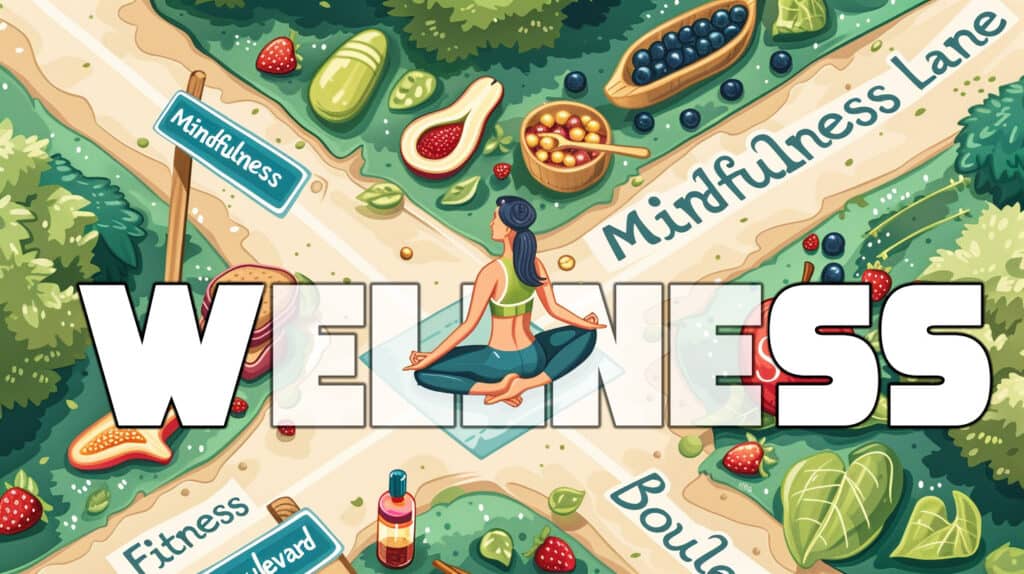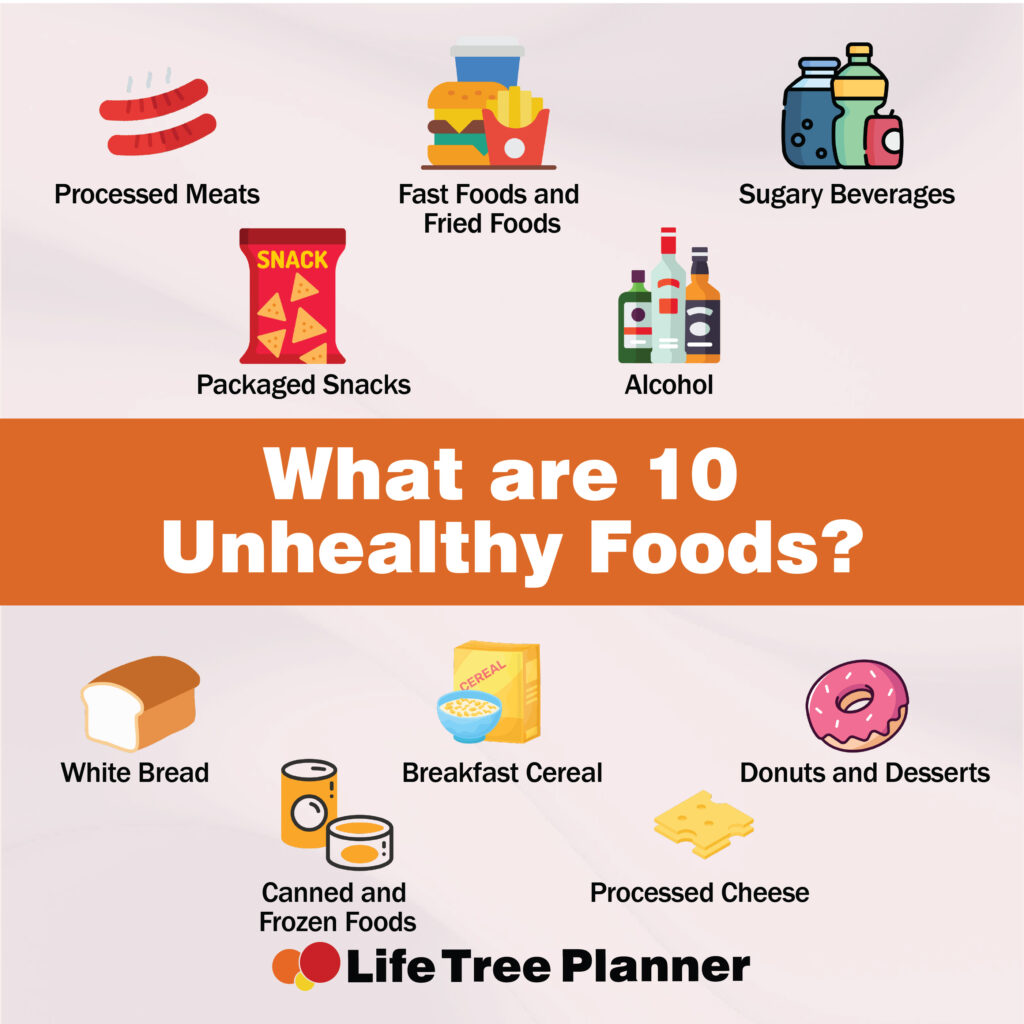
Are you struggling to make healthier food choices? Many of us face the challenge of navigating a diet filled with unhealthy foods that can undermine our well-being. But you’re not alone in this journey—we all want to eat better and feel our best.
In this article, we will explore the top 10 unhealthy foods and explain why they are detrimental to your health. More importantly, we’ll provide you with healthy replacements for each of these foods, helping you make better dietary choices.
With our expertise and straightforward advice, you’ll discover how to replace processed meats, sugary beverages, and more with nutritious options that support long-term health.
By following our plan, you’ll gain valuable insights and actionable steps to transform your eating habits. Continue reading to learn how simple changes can lead to a healthier, more vibrant you.
Let’s start this journey together and pave the way to a better diet and improved well-being.
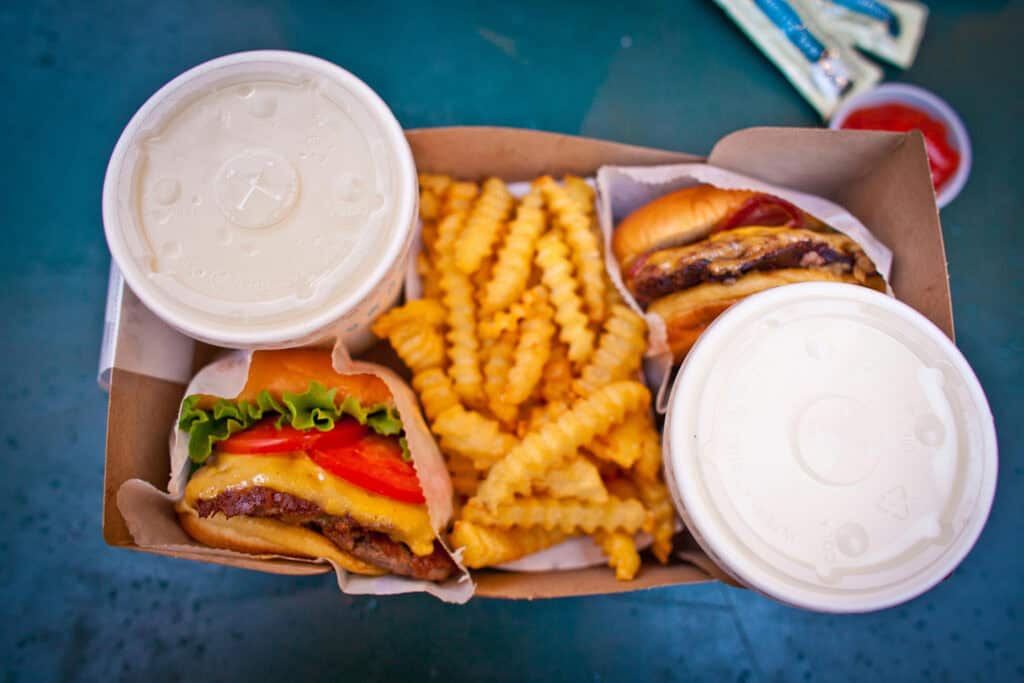
Here Are 10 Unhealthy Foods:
- Processed Meats: Includes items like sausages and bacon, which are high in sodium, preservatives, and unhealthy fats, linked to heart disease and cancer.
- Fast Foods and Fried Foods: Often contain trans fats, excessive saturated fat, and high levels of sodium, contributing to weight gain and increased risk of heart disease.
- Sugary Beverages: Drinks like soda and energy drinks are high in added sugars and empty calories, leading to obesity, diabetes, and tooth decay.
- Packaged Snacks: Items such as chips and microwave popcorn are typically high in unhealthy fats, salt, and artificial additives.
- Alcohol: Excessive consumption can lead to liver damage, addiction, and other health issues, and often contains empty calories.
- White Bread: Made from refined grains with little fiber, contributing to blood sugar spikes and increased risk of metabolic disorders.
- Breakfast Cereals: Many are high in sugar and low in nutrients, leading to poor diet quality and an increased risk of obesity.
- Donuts and Desserts: High in added sugars and trans fats, these items contribute to weight gain, high cholesterol, and diabetes.
- Canned and Frozen Foods: Often contain high levels of sodium and preservatives, which can negatively impact blood pressure and overall health.
- Processed Cheese: Contains unhealthy fats, sodium, and artificial additives, providing minimal nutritional value and contributing to cardiovascular issues.
See also Why Is Diet Important? 8 Key Benefits for a Healthier You
1. Processed Meats

Processed meats, such as bacon, sausages, and deli meats, are among the most unhealthy foods due to their high content of trans fats, saturated fats, and sodium.
Regular processed meat consumption can lead to weight gain, high blood pressure, and increased cholesterol levels, all of which are risk factors for heart disease and cardiovascular disease. The preservatives and additives in these meats also contribute to inflammation and other health issues.
Junk foods, including processed meats, lack the nutrients needed for overall wellness.
Reducing consumption of these unhealthy foods and opting for healthier alternatives, like lean proteins and plant-based options, can significantly improve heart health and lower the risk of chronic diseases. Eating whole foods is essential for long-term wellness.
Here’s a list of common processed meats and their healthy replacements:
1. Bacon
- Healthy Replacement: Turkey bacon or smoked tempeh strips.
2. Sausages
- Healthy Replacement: Chicken or turkey sausages, or plant-based sausages.
3. Hot Dogs
- Healthy Replacement: Chicken or turkey dogs, or veggie dogs.
4. Deli Meats (Ham, Salami, Bologna)
- Healthy Replacement: Grilled chicken, turkey breast, or roasted veggies.
5. Pepperoni
- Healthy Replacement: Sliced turkey pepperoni or mushroom slices.
6. Corned Beef
- Healthy Replacement: Grilled lean beef or lentil patties.
7. Pastrami
- Healthy Replacement: Grilled chicken or turkey breast.
By choosing these healthier alternatives, you can reduce your intake of trans fats, sodium, and preservatives while promoting better well-being.
2. Fast Foods and Fried Foods

Fast foods and fried foods are among the most unhealthy foods due to their harmful ingredients and poor nutritional value. A typical fast food meal often contains ultra-processed ingredients, deep-fried in oils like palm oil, which are high in saturated and trans fats.
These unhealthy fats, commonly found in fried chicken, potato chips, and other junk foods, increase the risk of heart disease and raise cholesterol levels. Fried foods are loaded with too much salt, further impacting overall health by raising blood pressure.
Deep-fried foods also lack healthy fats and essential nutrients, making them poor choices for a balanced diet. For better health, it’s crucial to replace these unhealthy foods with healthier options and foods to eat like whole grains and lean proteins.
Here’s a list of Fast Foods and Fried Foods with healthier replacements:
- Fried Mozzarella Sticks → Hummus with Veggie Sticks: Rich in fiber, healthy fats, and protein.
- French Fries → Baked Sweet Potato Fries: Lower in calories and rich in nutrients like fiber and vitamin A.
- Fried Chicken → Grilled or Baked Chicken: Reduced fat and calories while maintaining protein content.
- Onion Rings → Baked Veggie Chips: Higher in fiber, with less oil and sodium.
- Pizza with Processed Toppings → Whole Grain Pizza with Veggies: A whole grain base and fresh vegetables boost nutrients and fiber.
- Potato Chips → Air-Popped Popcorn or Kale Chips: Lower in fat, higher in fiber, and packed with vitamins.
- Fried Fish → Grilled or Steamed Fish: Preserves healthy omega-3 fats while reducing unhealthy trans fats.
3. Sugary Beverages

Sugary drinks, such as sodas, energy drinks, and sweetened juices, are filled with added sugars and refined carbohydrates, offering no nutritional value. These beverages provide empty calories, contributing to weight gain without satisfying hunger.
Consuming too many refined sugars leads to spiking blood sugar levels, which can result in insulin resistance and an increased risk of diabetes.
Even diet soda, while lower in sugar, may still disrupt blood sugars and impact a good diet plan. The World Health Organization recommends reducing added sugar intake to improve overall health.
Choosing water or unsweetened alternatives can help maintain steady blood sugar levels while avoiding the detrimental effects of high refined carbs found in sugary beverages.
Here’s a list of healthy replacements for sugary beverages:
- Water: The best option for hydration without any added sugars or calories.
- Infused Water: Add slices of fruits like lemon, cucumber, or berries for natural flavor.
- Herbal Tea: Unsweetened herbal teas offer a variety of flavors without the sugar.
- Sparkling Water: For a fizzy alternative, opt for unsweetened sparkling water.
- Coconut Water: A natural source of hydration with fewer sugars than most sugary drinks.
- Green Tea: Rich in antioxidants and a great low-calorie beverage.
- Black Coffee: For caffeine lovers, black coffee offers a sugar-free energy boost.
- Vegetable Juices: Low in sugar, these provide vitamins and minerals without spiking blood sugar.
- Diluted 100% Fruit Juice: Mix with water to reduce sugar content while still enjoying some flavor.
4. Packaged Snacks
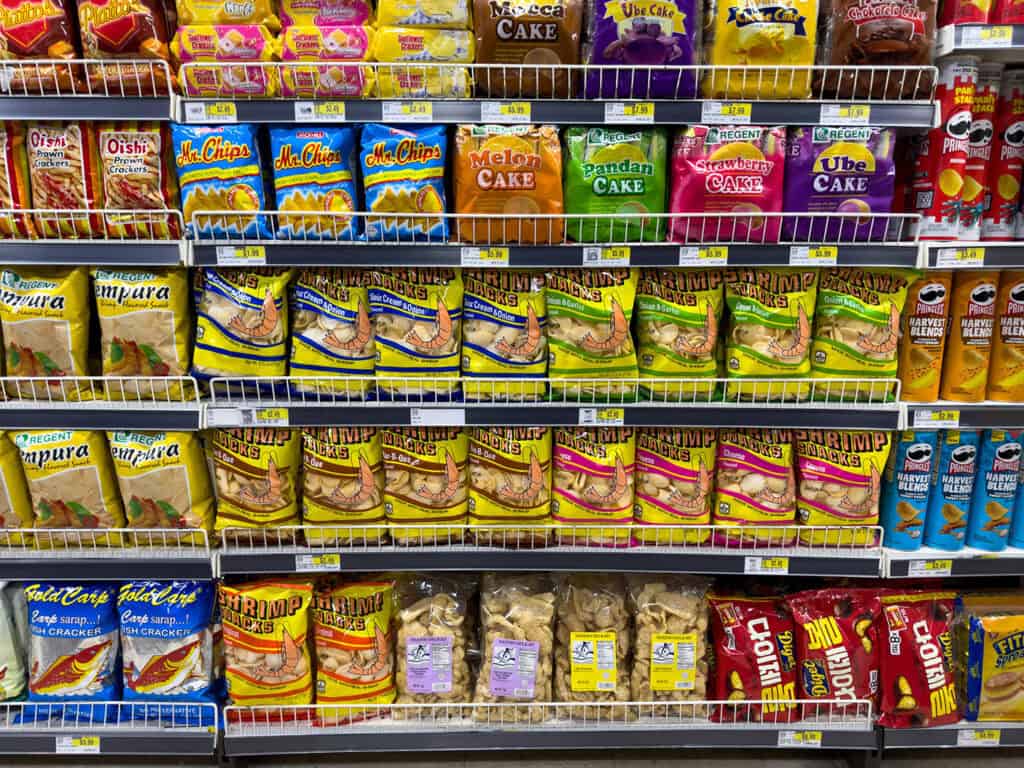
Packaged snacks are often unhealthy due to their high content of added sugar, refined carbs, and unhealthy fats like partially hydrogenated oils.
Processed snacks, such as potato chips, microwave popcorn, and snacks made from white bread, contain ingredients like palm oil and corn syrup, which contribute to weight gain, high cholesterol, and inflammation.
These snacks are also typically high in processed oils and vegetable oils, making them detrimental to heart health. Unlike healthy carbs found in whole foods, these refined ingredients lack essential nutrients and can lead to long-term health issues.
Lifestyle medicine promotes reducing the consumption of processed foods and opting for whole, unprocessed snacks to maintain balanced nutrition and overall well-being.
Here’s a list of packaged snacks and their healthy replacements:
- Potato Chips → Air-popped Popcorn
- Microwave Popcorn → Nuts and Seeds
- Candy Bars → Fresh Fruit
- Cookies → Vegetable Sticks with Hummus
- Instant Noodles → Whole Grain Crackers with Avocado
- Snack Cakes → Greek Yogurt with Honey or Fruit
- Crackers → Homemade Trail Mix
- Flavored Chips → Rice Cakes with Almond Butter
- Sugary Granola Bars → Hard-Boiled Eggs
- Packaged Muffins → Roasted Chickpeas
5. Alcohol

Alcohol is unhealthy due to its significant impact on nutrition and lifestyle medicine. Regular consumption increases the risk of heart disease and cardiovascular disease by contributing to high blood pressure and damaging the heart.
Additionally, alcohol can lead to chronic health conditions such as liver disease, digestive problems, and neurological issues. It disrupts nutrient absorption and metabolism, leading to deficiencies and overall poor health.
Choosing healthier alternatives, such as water, herbal teas, or fresh juices, can support better health outcomes and reduce the risk of these serious conditions. Adopting a balanced approach to nutrition and lifestyle is crucial for maintaining optimal well-being.
6. White Bread

White bread is unhealthy due to its use of refined flour and refined carbohydrates, which are stripped of their nutritional value. Made from refined grains, it lacks the essential nutrients and fiber found in whole grains like brown rice and barley.
Consuming white bread can lead to health risks such as weight gain and increased blood sugar levels. To maintain a balanced diet, it’s advisable to avoid refined grains and opt for whole-grain alternatives that offer better nutritional value and health benefits.
Choosing foods rich in fiber and nutrients supports overall well-being and helps mitigate the negative effects associated with refined carbohydrates.
7. Breakfast Cereals
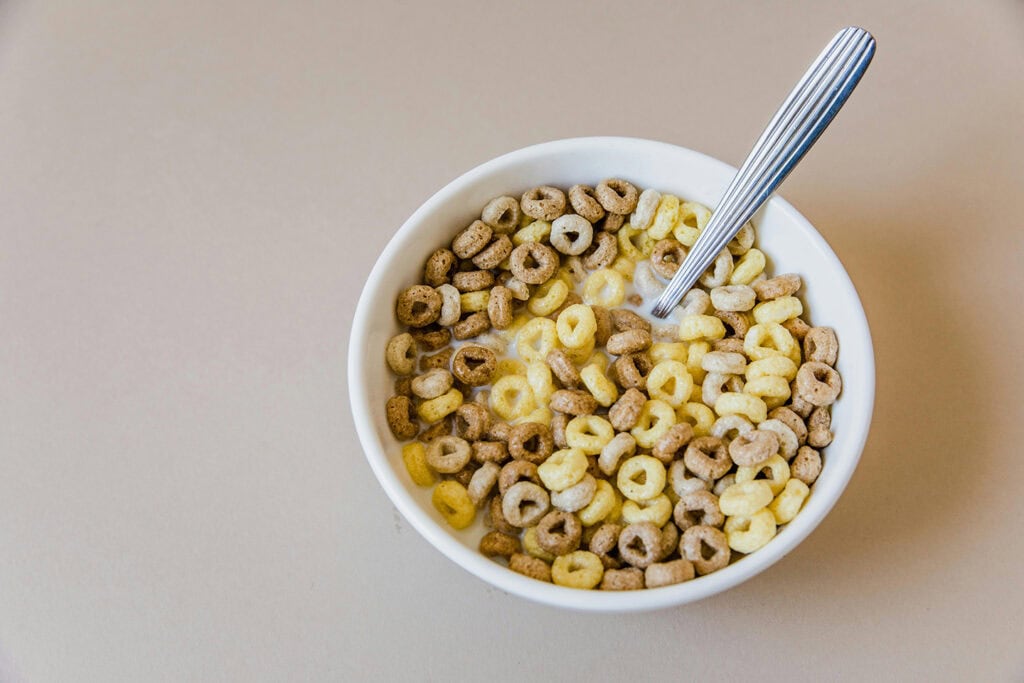
Breakfast cereals are often unhealthy due to high levels of added sugars and corn syrup, contributing to empty calories and an increased risk of weight gain and metabolic issues.
Many cereals contain refined grains and trans fats, including partially hydrogenated oils, which are harmful to heart health. These ultra-processed foods offer minimal nutritional value and can lead to poor dietary habits.
While milk is commonly consumed with cereal, it can also be problematic due to added sugars in flavored varieties and potential hormones in non-organic milk. To promote better health, consider avoiding these processed options and opting for whole, nutrient-dense foods.
Here’s a list of 10 healthy breakfast options to replace sugary cereals:
- Greek Yogurt with Fresh Fruit: Packed with protein and probiotics, topped with berries or sliced fruit for natural sweetness.
- Overnight Oats: Made with rolled oats, chia seeds, and almond milk, and topped with nuts, seeds, and fresh fruit.
- Smoothie Bowl: Blend spinach, banana, berries, and a scoop of protein powder, and top with granola and seeds.
- Whole Grain Toast with Avocado: Spread mashed avocado on whole grain toast and top with a sprinkle of seeds or a poached egg.
- Chia Seed Pudding: Mix chia seeds with almond milk and let them sit overnight, then top them with fresh fruit and nuts.
- Eggs and Vegetables: Scrambled or poached eggs with sautéed vegetables like spinach, tomatoes, and bell peppers.
- Fruit and Nut Parfait: Layer fresh fruit with nuts, seeds, and a dollop of plain yogurt.
- Quinoa Breakfast Bowl: Cooked quinoa with almond milk, and a touch of honey, and topped with nuts and fruit.
- Nut Butter and Apple Slices: Apple slices with a spread of almond or peanut butter for a satisfying and nutritious start.
- Whole Grain English Muffin with Hummus: Spread hummus on a toasted whole grain English muffin and top with cucumber slices or cherry tomatoes.
8. Donuts and Desserts

Donuts and desserts are considered unhealthy due to their high content of added sugars, refined flour, and saturated fats. These ultra-processed foods contribute to empty calories, which can lead to fat accumulation in the belly and an increased risk of obesity.
The high levels of full-fat dairy and other unhealthy fats can exacerbate health risks, including cardiovascular issues.
Regular consumption of sweets like donuts can also lead to dental problems and overall weakness. As junk food, these treats are low in nutrients, promoting long-term health issues while offering little in terms of nutritional value.
Here are replacements for unhealthy sweets, desserts, and ice creams:
- Pie — Fruit crisps made with a whole-grain topping
- Donuts — Baked oatmeal or whole grain muffins
- Chocolate Cake — Dark chocolate with at least 70% cocoa or fruit-based desserts
- Cheesecake — Greek yogurt with honey and fresh fruit
- Ice Cream Sundaes — Frozen yogurt or dairy-free sorbet
- Cookies — Almond flour or whole grain cookies with less sugar
- Cupcakes — Mini fruit tarts made with whole grain crust
- Brownies — Black bean brownies or avocado-based brownies
- Milkshakes — Smoothies made with unsweetened almond milk and fresh fruit
- Candy Bars — Nuts and dried fruit bars with minimal added sugars
9. Canned and Frozen Foods
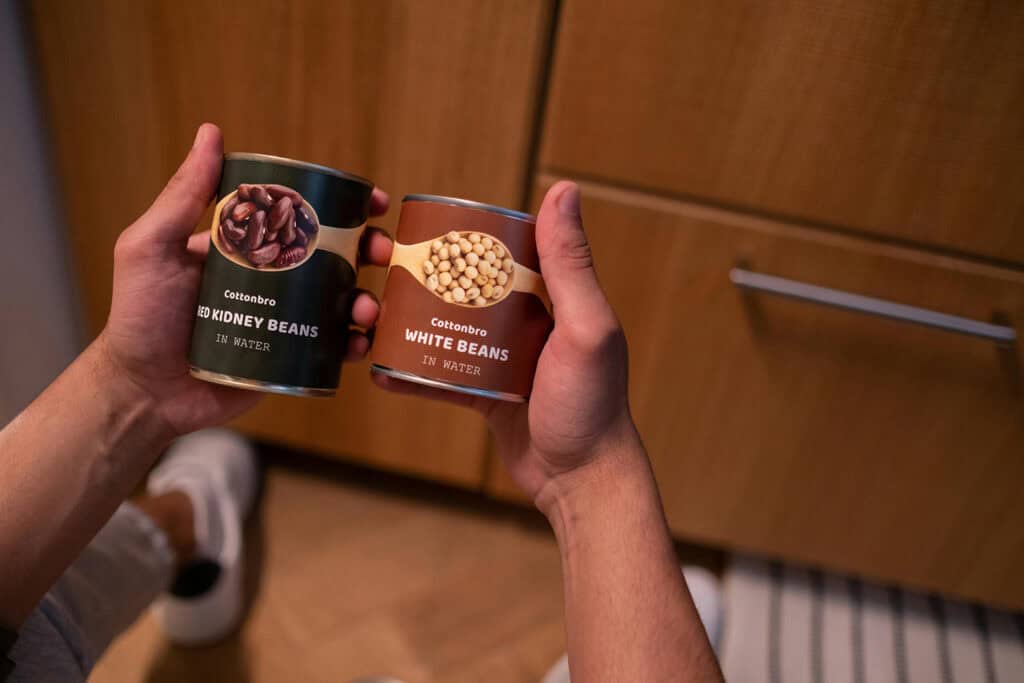
Canned and frozen foods are often unhealthy due to excessive sodium and potentially harmful ingredients. Canned goods and frozen dinners frequently contain high levels of salt, which can contribute to kidney problems and high blood pressure.
They often include artificial additives, preservatives, and food coloring, which can negatively impact overall health. Additionally, many of these products are ultra-processed and contain refined grains or deep-fried components, undermining a balanced diet.
To maintain a healthier diet, it’s advisable to avoid these foods and focus on fresh, whole ingredients. Choosing minimally processed options and avoiding refined grains can better support long-term health and wellness.
Here’s a list of harmful canned and frozen foods with healthier alternatives:
- Canned Soup (High Sodium)
Replace with: Homemade vegetable or chicken soup with low sodium or no added salt. - Frozen Dinners (High in Preservatives and Sodium)
Replace with: Freshly prepared meals using whole ingredients like lean proteins, vegetables, and whole grains. - Canned Vegetables (with Added Salt)
Replace with: Fresh or frozen vegetables without added salt; or rinse canned vegetables to reduce sodium. - Frozen Pizza (High in Saturated Fats and Sodium)
Replace with: Homemade pizza with whole grain crust, fresh vegetables, and lean meats. - Canned Fruit (with Added Sugar)
Replace with: Fresh fruit or frozen fruit without added sugars; or make fruit compote at home. - Canned Meat (High in Sodium and Preservatives)
Replace with: Fresh, lean meats like chicken, turkey, or fish, cooked at home. - Frozen French Fries (Deep-Fried and High in Trans Fats)
Replace with: Baked sweet potato fries or homemade oven-baked fries with minimal oil. - Canned Beans (with Added Salt)
Replace with: Dried beans cooked at home or low-sodium canned beans, rinsed before use. - Frozen Chicken Nuggets (High in Saturated Fats and Sodium)
Replace with: Homemade baked chicken tenders using whole chicken breast and healthy breading. - Canned Pasta (High in Sodium and Preservatives)
Replace with: Whole grain pasta with homemade tomato sauce and fresh vegetables.
10. Processed Cheese

Processed cheese is considered unhealthy due to its high content of trans fats and saturated fat, contributing to an increased risk of heart disease. Often found in junk foods and fast food, processed cheese provides empty calories with minimal nutritional value.
It is typically loaded with sodium and artificial additives, making it one of the worst foods for a balanced diet.
The consumption of too much-saturated fat from processed cheese, along with other processed foods, can lead to adverse health effects, including obesity and cardiovascular issues. Incorporating lifestyle medicine principles, and reducing processed cheese intake can promote healthier eating habits and better overall health.
See also How to Love Your Own Body? 8 Practical Tips to Boost Body Image and Self-Esteem
What are 10 Unhealthy Foods? A Recap
To wrap up, it’s essential to recognize that many commonly consumed items fall into the category of unhealthy foods. Ultra-processed foods, such as fast food and fried chicken, often contain trans fats, added sugars, and excessive saturated fat, contributing to an increased risk of chronic diseases.
Processed meats, like sausages and deli meats, and snack foods such as microwave popcorn and potato chips, are loaded with sodium and unhealthy fats.
French fries, diet soda, and processed snacks are among the worst foods for a balanced diet due to their high levels of corn syrup, trans fats, and empty calories.
To improve health, it’s crucial to limit these unhealthy options and focus on healthier foods, including those prepared with olive oil and whole, unprocessed ingredients.

